Oxford University Cecil Rhodes statue: Campaigners issue demands
- Published
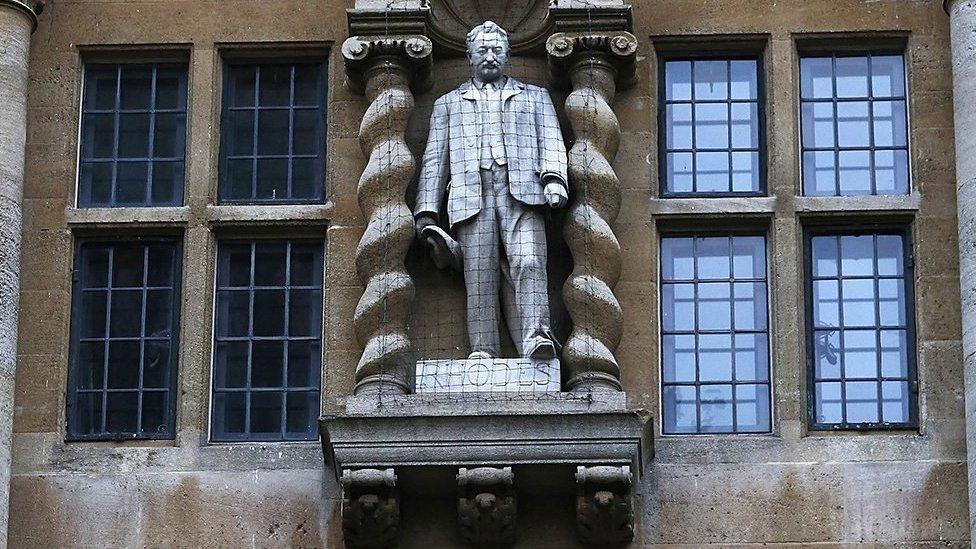
Oriel College said the "overwhelming message" it had received was for the statue to stay
Students calling for the removal of a statue at Oxford University of British imperialist Cecil Rhodes have issued a set of demands to the university.
The "Rhodes Must Fall" group met to discuss its next move after Oriel College said the monument would stay.
The group says Rhodes, a 19th Century businessman and politician in southern Africa, represents white supremacy.
The university said it had already invited the group to help it achieve an "ever-more inclusive community".
The group issued seven demands, including a call for Oxford to "acknowledge and confront its role in the ongoing physical and ideological violence of empire".
A university spokesman said the institution was "engaged in constructive and productive dialogue with students on a range of equality and diversity issues".
He said: "Last Friday, we re-extended our invitation to Rhodes Must Fall to join other students in this effort to achieve an ever-more inclusive university community. In particular, we wish to discuss the need to address the under-representation of black and minority ethnic (BME) students... We hope they will accept this opportunity."
'Historical context'
Campaign organiser Sarah Atayero said: "We continue to believe that the removal and relocation of the monument to Cecil Rhodes is critical for Oxford to reckon with its past, and for Oxford to acknowledge the present-day issues it faces around racism and representation."
Oriel College denied claims that donors threatened to withdraw more than £100m of funding if the statue was removed.
Rhodes was a student at Oxford and a member of Oriel College in the 1870s and went on to become prime minister of the Cape Colony in the 1890s.
He also gave his name to the historical region known as Rhodesia, which is now Zambia and Zimbabwe.
When Rhodes died in 1902, he left money to Oriel College. A scholarship programme in his name has so far been awarded to more than 8,000 overseas students.
The "Rhodes Must Fall" campaign began in South Africa, where a Rhodes statue was removed, and the movement was adopted by campaigners in Oxford.
On Thursday, the college said the statue should remain but it would add "a clear historical context to explain why it is there".
It said: "The college believes the recent debate has underlined that the continuing presence of these historical artefacts is an important reminder of the complexity of history and of the legacies of colonialism still felt today."
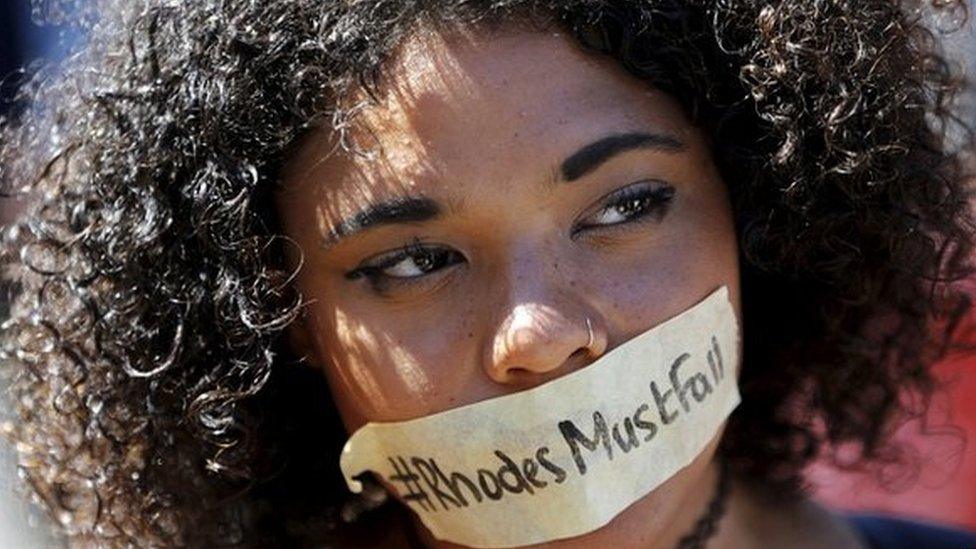
The Rhodes Must Fall campaign saw the removal of a statue in Cape Town

The campaign's seven demands:
For Oxford to "acknowledge and confront its role in the ongoing physical and ideological violence of empire"
A commitment to "recontextualise iconography celebrating grave injustice" including the removal of statues and portraits and renaming buildings
The decolonisation of curriculum to "hear the voices suffocated into silence by Eurocentric academy"
Representation of people of colour at all levels of the university, blind-marked applications and "implicit bias training"
An "immediate end to outright racism people of colour face on campus" and effective recourse for discrimination
For work of anti-racist students and staff to be recognised and institutionalised
For an end to public smear campaigns against the movement and its members

- Published29 January 2016
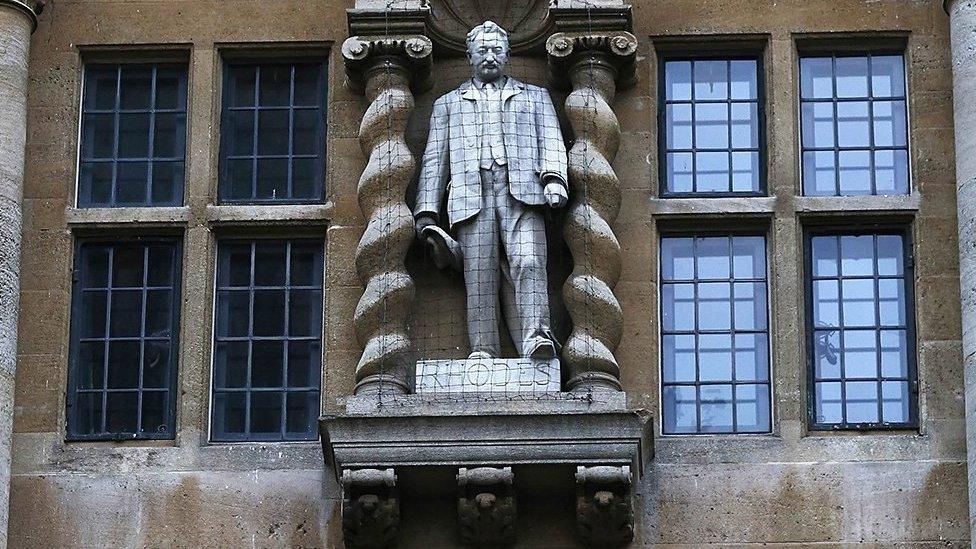
- Published20 January 2016

- Published18 January 2016
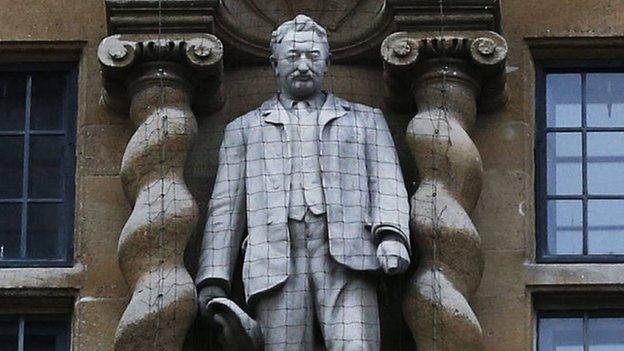
- Published13 January 2016
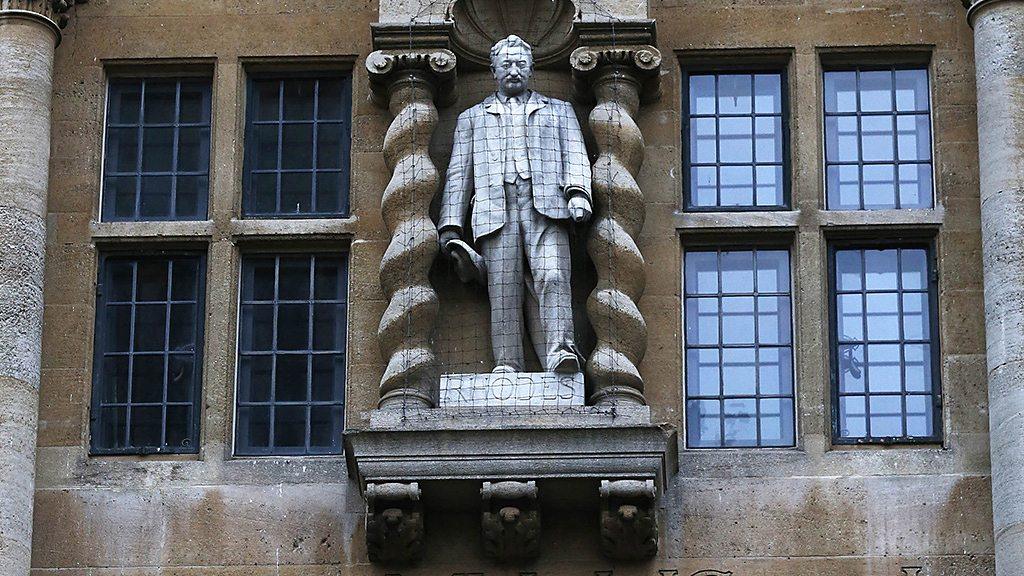
- Published24 December 2015
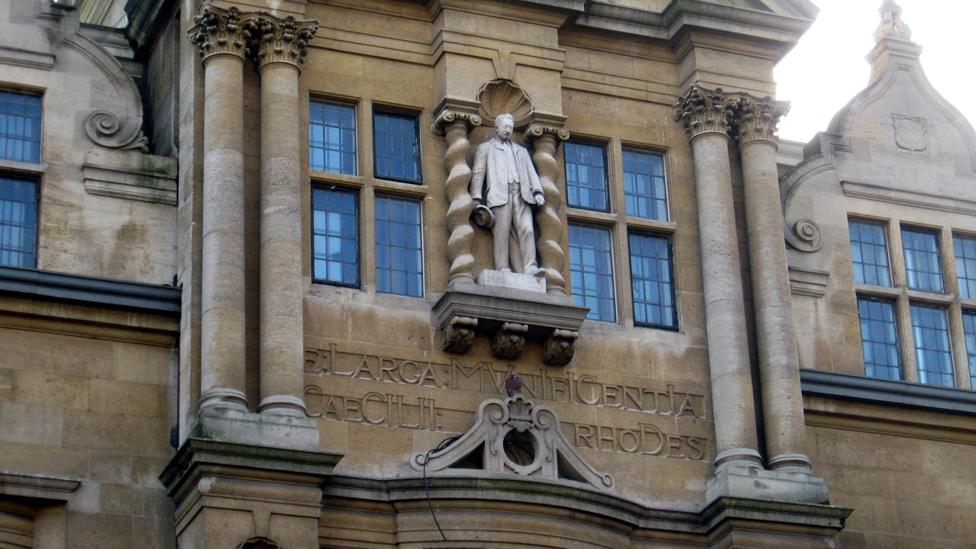
- Published17 December 2015

- Published1 April 2015
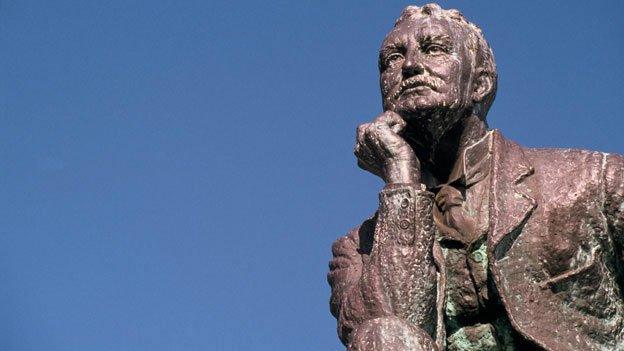
- Published30 March 2015
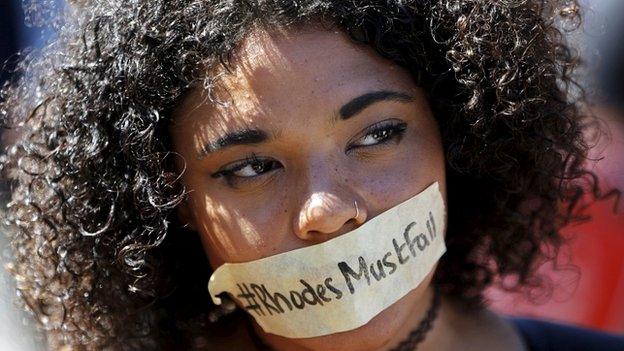
- Published9 December 2015
